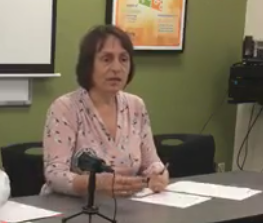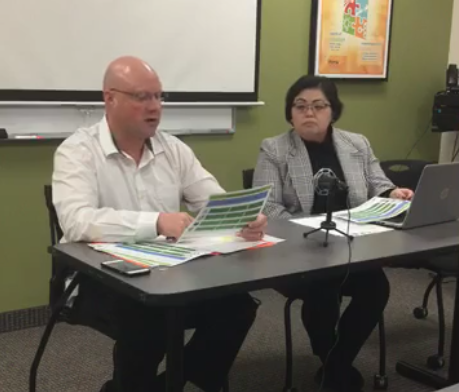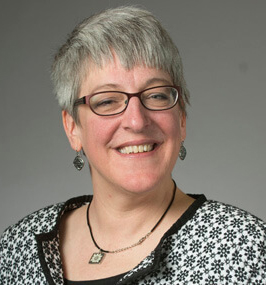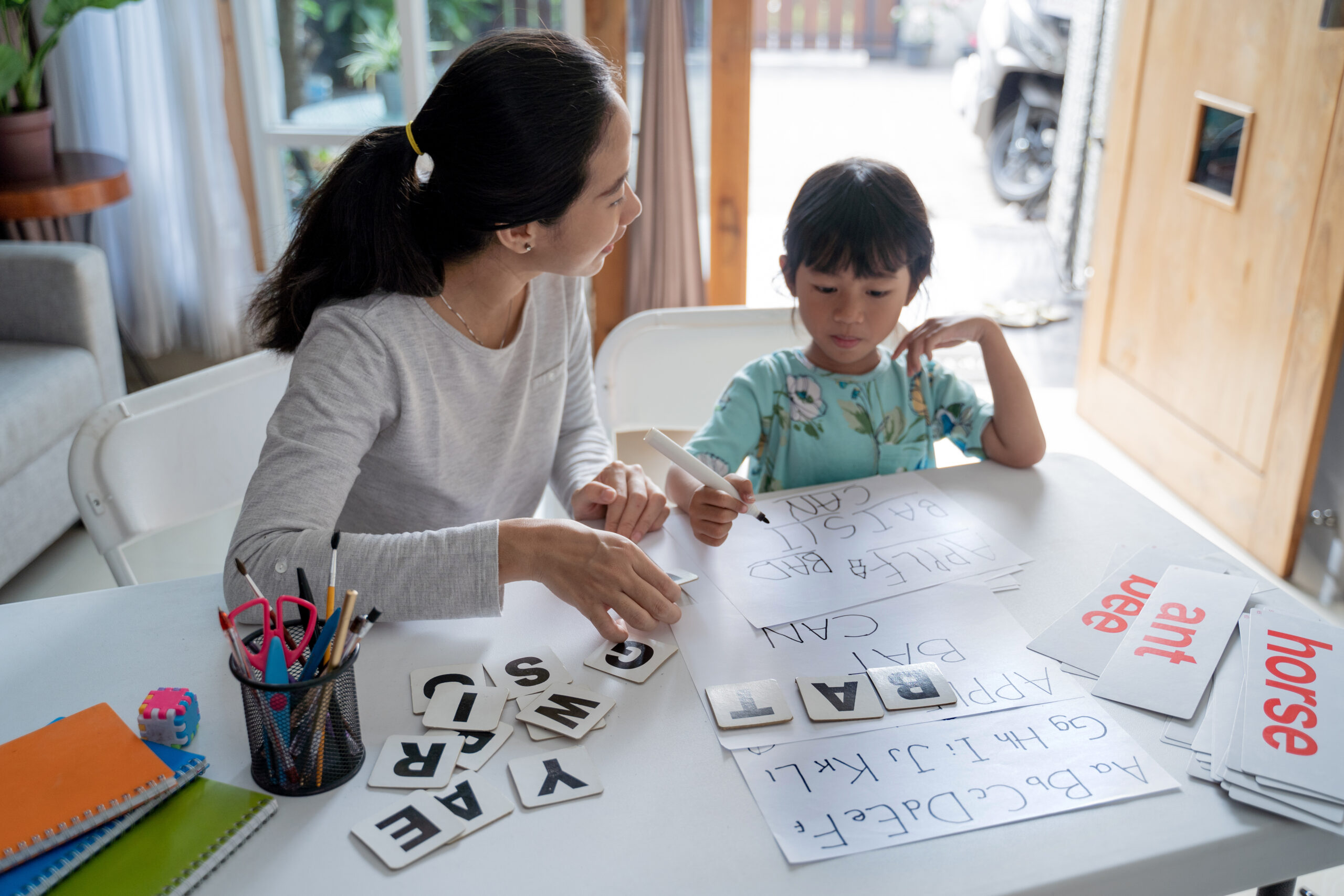
This month’s Ann Kaner-Roth Policy Hour was focused on recent and upcoming work at the Minnesota Department of Human Services (DHS) with presenters from the Child Care Assistance Program and Child Development Services Division.
Child Care Assistance Program
The first presenter was Laurie Possin, manager with the Child Care Assistance Program, who provided updates on three main topics:
CCAP RULE MAKING

The Child Care Assistance Program (CCAP), has begun a rule revision process to better align the current rules with changes in federal and state laws. This rulemaking process has been guided by an advisory group that will meet again for a full day on December 4th. Laurie stressed that this process can not override state or federal statutes, nor will it change licensing requirements or CCAP maximum payments, because these are set in Minnesota Statute 119B and can’t be changed by rule. For more information and/or to provide input, please visit HERE.
COST MODELING ANALYSIS
In response to new federal laws and regulations, DHS is partnering with the research and consulting firm, ICF, to conduct a child care cost modeling analysis (also referred to as a cost of care analysis). The analysis involves collecting information about child care programs’ business practices and expenses to help determine the true cost of providing child care—and high quality child care—in Minnesota.
DHS convened experienced stakeholders as an advisory panel to provide input on the types and quantities of resources necessary to achieve quality child care. The advisory panel includes stakeholders from groups such as the Early Learning Council, First Children’s Finance, and Child Care Aware of Minnesota, as well as different types of child care providers statewide, including home and center based early care and education providers. The Advisory Panel will meet again on December 10th to review a draft report, and the goal is to publish the final report in January.
POTENTIAL LEGISLATIVE PROPOSALS IN 2020
Minnesota is still out of compliance on some elements of the Federal Child Care and Development Block Grant—most specifically when it comes to our CCAP reimbursement rates. The law requires that families on CCAP have equal access to care (as compared to private pay families), and has been moving toward defining what that means.
As of now, the lowest reimbursement rate allowed by the Federal law is 25% of the most recent market rate survey. In Minnesota, we are currently at an average of 16% of licensed family child care rates and 23% of center rates based on the 2018 market rate survey, putting us out of compliance. Since compliance was required by September of 2019, Minnesota was already on a corrective action plan which has now expired, and we are subject to penalties. It is still unclear if and how the penalties will be assessed, and whether they will be a blanket penalty for all missing items or will be “stacked” so that each item out of compliance is assessed. Either way, the amount could be significant, given that Minnesota receives approximately $69 million per year, and penalties may be 4% of that figure.
While final decisions about Legislative proposals rest with the Governor, the Department is proposing that maximum CCAP rates be updated to at least the 25th percentile of the 2018 market rate, and that these be updated following each market rate survey (now set to be done every 3 years) to achieve continued compliance with the federal law. There are a few additional items that are being proposed to bring us into compliance, but are primarily wording or alignment issues that do not have a large fiscal impact.
Child Development Services Division
The next presenters were Scott Parker and Mee Vang from the Child Development Services Division.

PARENT AWARE GRANTS
The Child Development Services Division has been engaging many stakeholders around the question of expanding the current Parent Aware grants to include programs that achieve a 4-Star Rating. While there are some policy decisions and cost-modeling yet to be completed, as well as final guidelines, the decision has been made to include grants for all star levels. This change would take place with the July 2020 Parent Aware cohort.
CHILD CARE SUPPLY BUILDING
This is a priority issue for the Governor’s Children’s Cabinet as well as other policymakers. There have been some funds put out into the community to attempt to address this issue, including grants to the Minnesota Initiative Foundations (MIFs)—both through DHS and the Minnesota Department of Employment and Economic Development (DEED). Each of the six MIFs are employing various strategies to address the need to build and sustain the child care system in their communities. The DHS funds will end in June 2020, and there will be a sharing of these efforts and their results with stakeholders after that date.
WORKFORCE TRAINING

A handout was shared that highlights the number of training opportunities offered in Fiscal Year 2019 throughout the state, as captured by the Develop system. This includes training by the Child Care Aware system, but also other vendors who use Develop to promote and record attendees. A few highlights:
- There were 6,427 training events offered statewide (86 counties had events; all 87 counties had attendees)
- The total attendance at these events was 125,823 which reflects 28,847 unique individuals
- Over half of these events were offered for free; another 1/3 were offered for $5-$10 per hour
There are also changes coming to the requirements and approval process for trainers. These will be accompanied by additional supports for new trainers through introduction of a “Training Academy” as well as expanded coaching and mentoring to help new trainers succeed in their work. These changes will roll out more fully in Fall 2020. There will also be changes to the course approval process.
OTHER UPDATES
- All DHS contracts are new subject to an RFP process, and there will be two RFPs out in the next month—one for inclusion support in child care, and one for the Minnesota Center for Professional Development.
- The Licensing Division as well as Child Development Services have been active on the Licensed Family Child Care Task Force, which was created out of the last Legislative session. The task force has 24 members representing a range of stakeholders, including Family Child Care providers (who make up 1/3 of the members), parents, Legislators, and other community organizations and stakeholders.
The Task Force has been charged with 8 specific tasks which touch on both licensing issues (which has been the focus of the first several meetings), as well as items that fall more into the Child Development Services Division such as training, Parent Aware, and business supports. The Task Force has been meeting monthly, and is required to submit an initial report to the Legislature in March 2020. The work will resume after session, with a final report due in 2021. There is more information about the task force and its meetings available HERE.

Want to watch all of December’s Ann Kaner-Roth Policy Hour? You can view the entire video on Minnesota’s Future Facebook page.
This guest blog post was written by Ann McCully, Executive Diretor, Child Care Aware® of Minnesota








